By Tyler Ray, Granite Outdoor Alliance
Outdoor Advocacy Supporting Experience-Based Lifestyles and Landscapes
The Mt. Washington Valley (MWV) has long been devoted to the pursuit of tourism as a means of attracting, accommodating, and entertaining visitors to support the local economy, much of which has been driven by an interest in the area’s signature natural asset, the White Mountain National Forest (WMNF). With a one-way destination focus, the area has developed into a high-amenity zone, creating a surplus of attractions and opportunities for any visitor, whether they are here for the outdoors or not, producing a transient yet indelible community character.
After the pandemic hit, that character was tested as we experienced two very drastic realities in a short amount of time: one with no tourists, creating a dormant economy, and one with too many visitors, jeopardizing quality of life and natural resources.
The pandemic has forced us to think in new ways—how to develop strategies that grow the economy while mitigating potential harm to the environment. It begs the question: what kind of economy do we want to live in, and is there a way to strike a balance?
The Outdoor Economy
One such emerging paradigm is the “outdoor economy,” so-called, which refers to economic activity that is made and spent around outdoor pursuits. These consumers purchase new gear, camp or stay in hotels, and frequent breweries, restaurants, and coffee shops, while living an experience-based lifestyle or traveling to recreate in wild landscapes. Many types of industries depend on the outdoor economy, including companies that make recreation gear, local shops that serve tourists, and even non-recreation businesses to provide a competitive advantage for hiring and retaining workers. The outdoor industry delivers 2.1 percent of U.S. economic output, is growing faster than the national economy, and is now emerging as a critical element in the economic recovery from the pandemic.
In New Hampshire, the outdoor economy accounted for more than $2.8 billion in economic impact in 2019, or about 3.2 percent of the state’s economy, ranking 9th highest—and matching outdoor powerhouse Colorado. Outdoor recreation businesses in New Hampshire employed 37,051 workers who earned $1.3 billion in wages, making it one of the largest industries in the state. The most successful sectors of the outdoor recreation industry include retail ($683 million), hospitality ($604 million), manufacturing ($340 million), and arts and entertainment ($324 million). Despite these impressive numbers, New Hampshire has failed to capitalize on its own competitive advantage, ranking second to last (just in front of Vermont), in terms of government expenditure on outdoor recreation activities as a percentage of the value added by outdoor activities as a whole.
That lack of investment in outdoor recreation activities, yet continued reliance on tourism, is killing the goose that lays the golden eggs. The truth is, COVID-19 exacerbated existing issues in the MWV; it did not create them.
Across the country, in similar “gateway” communities to public lands and outdoor attractions, these issues include visitor friction, trail-user impacts, affordable housing, income inequality, and limited workforce—all indicators of a saturated marketplace. Add in a surge of remote workers and occupied second homes, and every kind of resource from town infrastructure to natural assets are strained, with this winter anticipated to be no exception. For the outdoor economy to resonate and have meaning, it needs a champion.
Enter Granite Outdoor Alliance (Granite Outdoor)
Granite Outdoor is a membership-based nonprofit launched this past fall, to promote a sustainable statewide outdoor economy that enhances recreation and provides economic benefit. The concept is to leverage natural assets to attract, stimulate, and improve the economy, catering to an outdoor-based lifestyle. Granite Outdoor’s mission is rooted in four basic policy areas, namely: economic development, conservation and stewardship, education and workforce; and health and wellness. Members include outdoor businesses, organizations, entrepreneurs, and individuals, reflecting the outdoor ecosystem across the state.
The organization intends to mobilize and empower these industry stakeholders to rise up and steward policy to support these four principal areas. It’s a proposed paradigm shift that moves away from the one-trick pony of tourism and focuses on developing balanced strategies to grow the economy while preserving the character of the people and region for future generations.
The time is now to generate our vision for the future, one that encourages responsible economic growth, attracts a younger workforce, protects the wild places in which we play, and provides better access to the outdoors to support healthy initiatives.
It’s time for us all to re-imagine our investments in social, political, and economic tools and to speak up to ensure we are on the path to sustainability. After all, we are all in this outdoor community together, and our future depends on it.
Interested in joining the movement? Whether business or individual, support a balanced outdoor economy by joining at www.graniteoutdoor.org.







